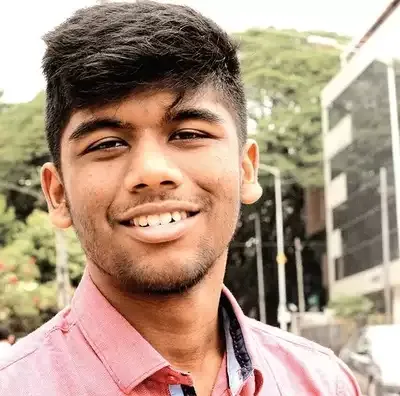
Sidharth Ramesh, a third-year MBBS student from Kasturba Medical College, Manipal, develops a prototype for secure storage of patient data
Each time a patient visits a hospital, this or her medical record is built from scratch. This is often time-consuming and annoying, especially if the individual has to shift cities. In an attempt to blend technology with medicine, Sidharth Ramesh, a third year MBBS student from Kastruba Medical College, Manipal developed a prototype—MedBlocks—for storing medical records securely on the InterPlanetary File System (IPFS) using blockchain technology.
For most medical institutions now, the patients’ data is stored in a server that either belongs to the hospital or is rented by the hospital. If a patient avails different treatments in different institutions, which is the normal practice, their medical information gets fragmented across hospitals, private medical practitioners and medical health apps.
“It is difficult to transfer this data and it is difficult to access vital medical information during an emergency,” explains Sidharth. “Also, there is a possibility of data leaks and unauthorised access to private medical data. A hospital can manipulate patient information or even sell it to private profit-making bodies,” he adds.
To address the multiple problems that come along with the current practice of storing medical data, Sidharth developed MedBlocks on May 1, working on it in his free time. “There is a need for medical records to be compatible across different hospitals and also, a way to store the data securely. Though I am a medical student, I learnt about blockchain technology, cryptography and how to code through online courses,” he said. He is keen that MedBlocks remains an open source project so that more people may benefit and build on it.
All data is encrypted using a random AES key that can only be decrypted by the patient or people who have the patient’s permission. The encrypted data is split across multiple computers (IPFS nodes) across the world. It is stored in a way similar to torrents. So, it can be accessed from anywhere by anyone as long as there is one node/peer with the copy of the data (the hospitals using this will keep a node online with their own patients’ data). The patients, doctors, laboratories or even mobile apps can access the data remotely from anywhere.
Sidharth had released the code on the online publishing platform Medium on May 26 and immediately caught the attention of Sana, a healthcare blockchain company based in Switzerland. “I was excited when I heard from the top management of Sana. They have expressed interest in my project. I have also been offered to join other blockchain-based start-ups in Bangalore. Negotiations are on and I am yet to take a final call on MedBlocks,” says Sidharth. “I am keen on working with Indian companies to ensure that I help hospitals in my country,” he emphasises.
“There is a need to keep a tab on upcoming technologies on our own, regardless of the subjects that we study in college. Everything is available online. I want our doctors and hospitals to know about problems like data breaches and selling of sensitive private information on black market. These are problems associated with storing healthcare records carelessly. This project was inspired by the Vaccination Beads developed by Arun Shanbhag, head, Manipal University Technology Business Incubator (MUTBI). Actually, I am looking forward to integrate this technology with that,” says Sidharth. Shanbhag and his team had developed a mobile app last year to store vaccination data of children, which is cheap and easily accessible to paramedical professionals and parents.
Hi! I am a robot. I just upvoted you! I found similar content that readers might be interested in:
https://bangaloremirror.indiatimes.com/news/state/manipal-student-uses-blockchain-for-medical-records/articleshow/64860327.cms
@steemcleaners https://coinspectator.com/news/594426/manipal-student-uses-blockchain-for-medical-records